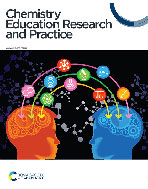Scaffolding of experimental design skills
Abstract
The results of an earlier four-year longitudinal research study on the development of experimental design skills led to the conclusion that 12–13 year old students probably need more help to design experiments than had been offered to them in that project. This paper reports the findings of the first year of a further four-year empirical research project. Its aim is to modify ‘step-by-step’ instructions for practical activities in a way that may enable the development of experimental design skills. Nine hundred and thirty-one (931) students have been involved. All were 12–13 years old in the beginning of the study (September 2021). Each year students spend six lessons (some or all of each) doing practical activities using worksheets we provide. The students were divided into three groups. Group 1 (control group) follow step-by-step instructions. Groups 2 and 3 are experimental groups. Group 2 follow the same instructions as Group 1 but also complete a scheme (a series of questions) on their worksheets concerned with the design of the experiment. Group 3 is required to design the experiments, guided by the scheme. The scheme asks indirect questions about the identification of the independent variable, the dependent variable and the constants. The impact of the intervention on the students’ experimental design skills (focusing on the identification and control of variables) and disciplinary content knowledge is measured by structured tests. After the first school year of the project it was clear that the applied type of instruction had a significant positive effect on the results of the Group 3 students’ experimental design skills (Cohen's d effect size: −0.28). However, no significant effect of the intervention could be detected on the changes in the Group 2 students’ experimental design skills (Cohen's d effect size: −0.11). ANCOVA analysis showed that these effects were due to a combination of several factors (mainly the intervention, school ranking and prior knowledge). This paper provides the interesting details of the results of the first year of the research and discusses the minor changes to the approach that have been made for the remaining three years of the project.


 Please wait while we load your content...
Please wait while we load your content...